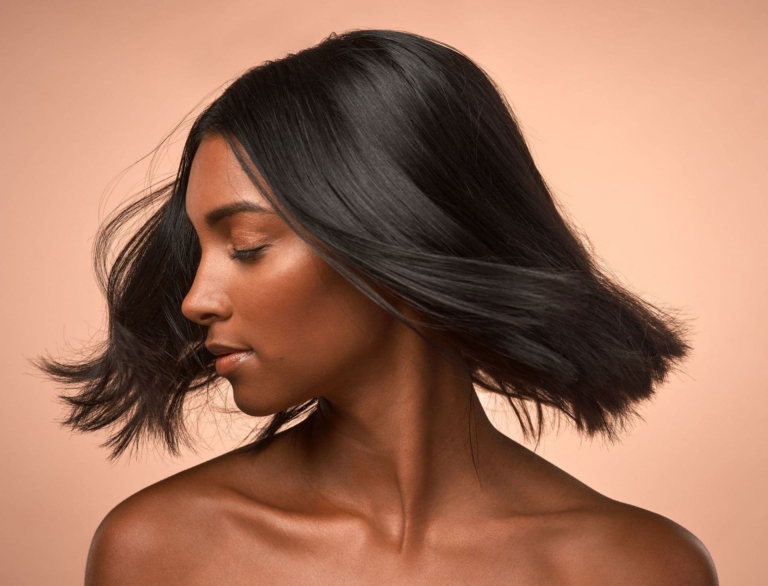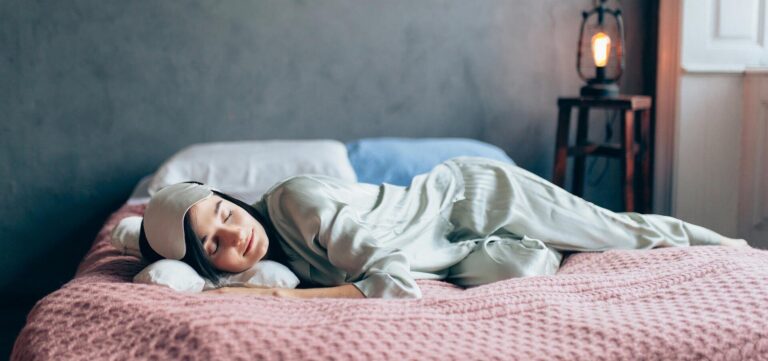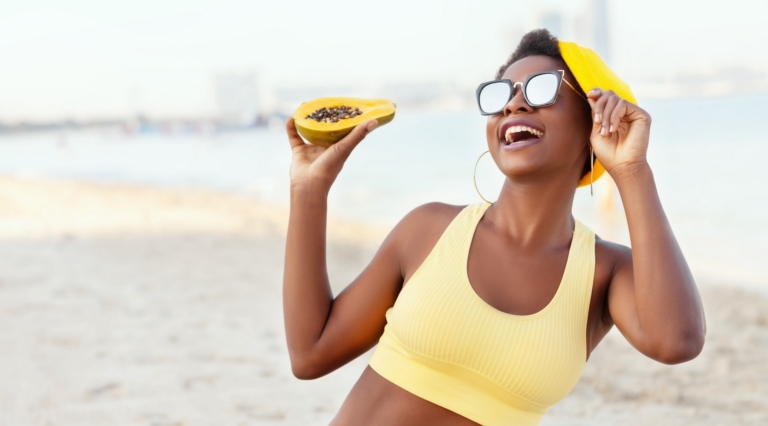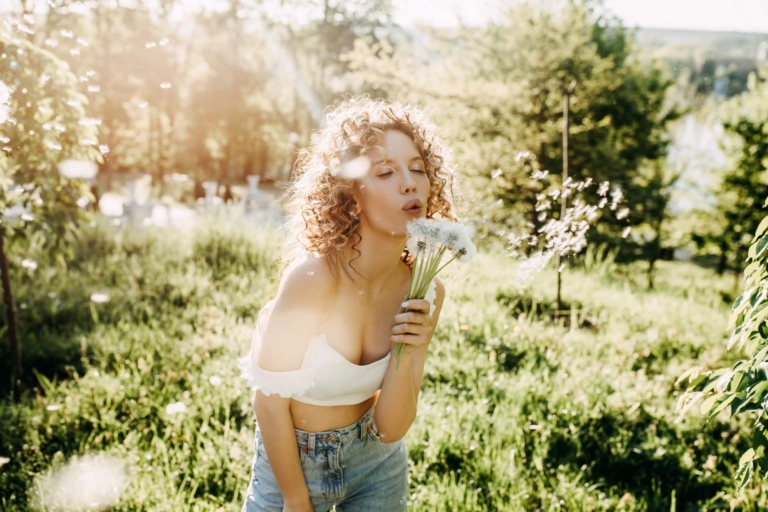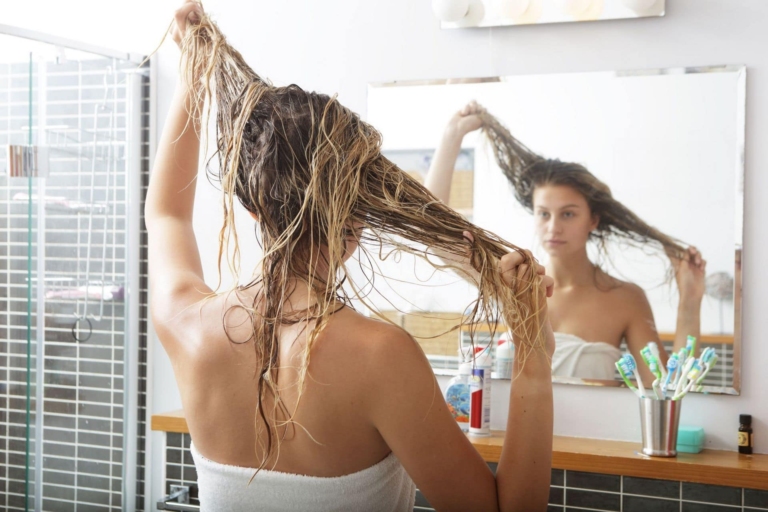What are the (protective) hairstyles?
You’ve probably heard about the possibilities offered by wearing a protective hairstyle!
Women with long hair swear by them, promising to give you longer, stronger hair.
Although hairstyles don’t make your hair grow by protecting the ends.
Especially if you’ve loosened your hair or damaged it in some other way, you can preserve that precious length by avoiding breakage.
Even if you opt for a protective hairstyle, think about your hair type, your hair solutions and your goals before visiting a hairdresser.
If you have fine hair, it’s a good idea to talk to your hairdresser about options for achieving a protective, effective style.
There are many ways to style your hair, especially when it comes to protection.
Depending on the length of your hair, you can try a style without any extensions or try shoulder-length styles that last up to six weeks.
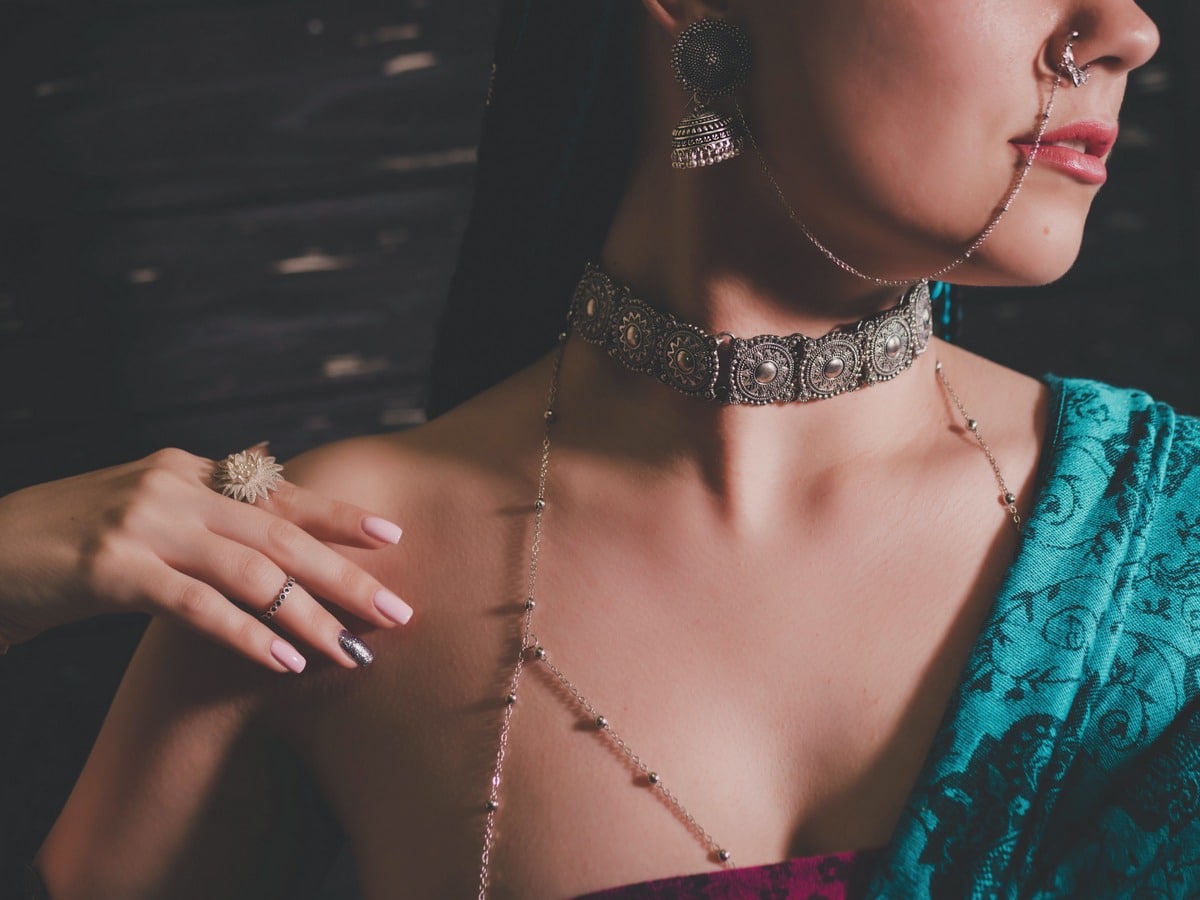
What is a protective hairstyle?
Protective styles are any hairstyles that protect your hair from damage.
These styles are generally low-maintenance, don’t require heating and keep your strands moisturized.
Protective hairstyles are an essential part of healthy hair care.
In the colder months, they protect hair from freezing temperatures, snow and frost.
In summer, protective styles prevent damage from sun, wind and water.
Curly hair is naturally dry and prone to breakage.
Over time, weather conditions and frequent styling damage hair fibers, resulting in damage and often loss of length.
Also read about: Dandruff in the hair
It’s important to style hair protectively and protect the ends, as these are the most delicate parts of the hair.
Frequent washing, conditioning, combing and styling often lead to tugging, which weakens the hair.
Protecting the ends of your hair makes them less likely to be handled and snag on clothing or your accessories.
By styling your hair in a protective way, you can enhance optimal hair health and growth.
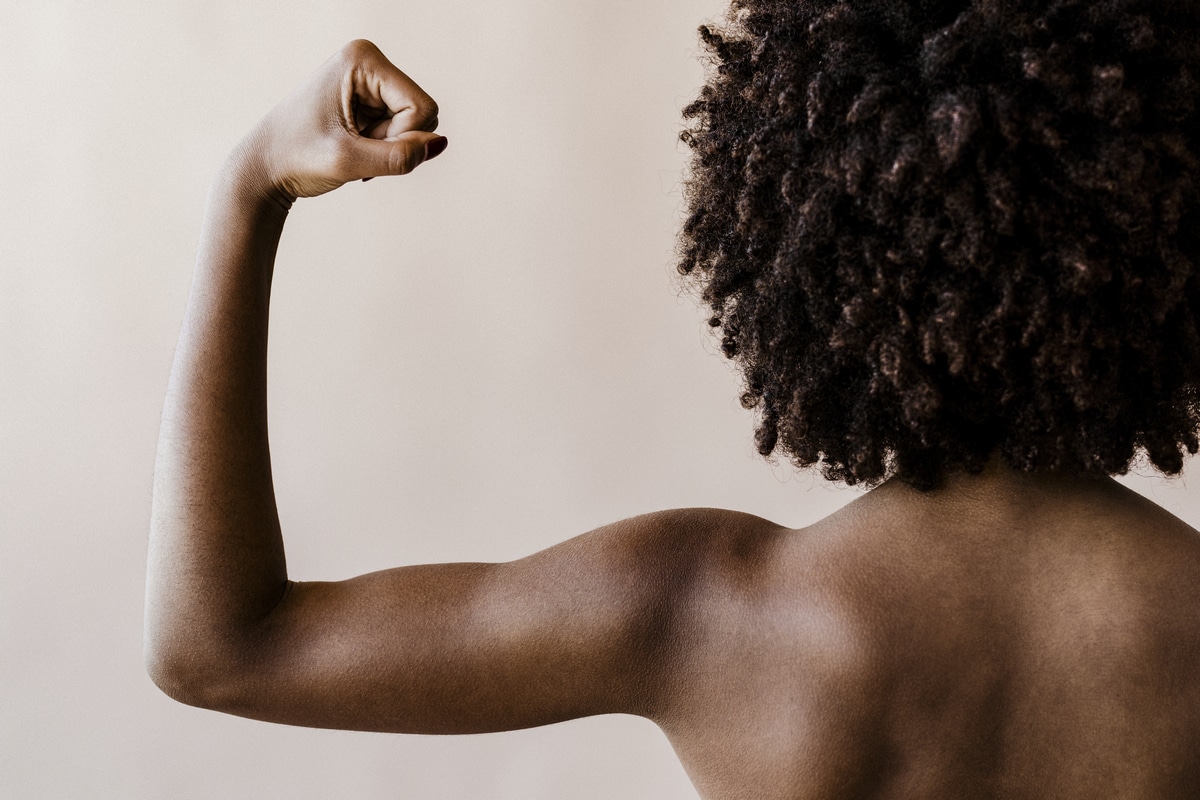
What’s the best protective hairstyle?
And protective hairstyles are an important part of healthy hair care.
If you have natural hair, you should have a few hairstyles in rotation for each season.
Finding the protective styles that work best for you can be a matter of trial and error for a while, but once you’ve found what works and the styles that suit you, you can’t go wrong with hairstyles.
It’s important to prepare your hair properly for protective styling so that it doesn’t do more harm than good.
All styling starts with clean, well-groomed hair.

Why a protective hairstyle?
Every hairstyle has an expiration date.
The date you choose will depend on how fast your hair grows and the style you choose.
Some hairstyles, like wigs, make it easier to maintain longer hair, as new growth is not exposed.
While others, like braids, start to look messy as your hair grows.
In addition, one sign that it’s time to give up your protective hairstyle is hair regrowth.
If you give up washing your protective hairstyle, your hair gets dirty and your scalp can become dry.
- Type of hairstyle
- Think about what you want to do and how much time you want to spend on it.

Cornrows
African braids are one of the most popular protective hairstyles you can try for natural or relaxed hair. They’re super protective, easy to maintain and can be styled in many different ways.
You can’t go wrong with simple back braids.
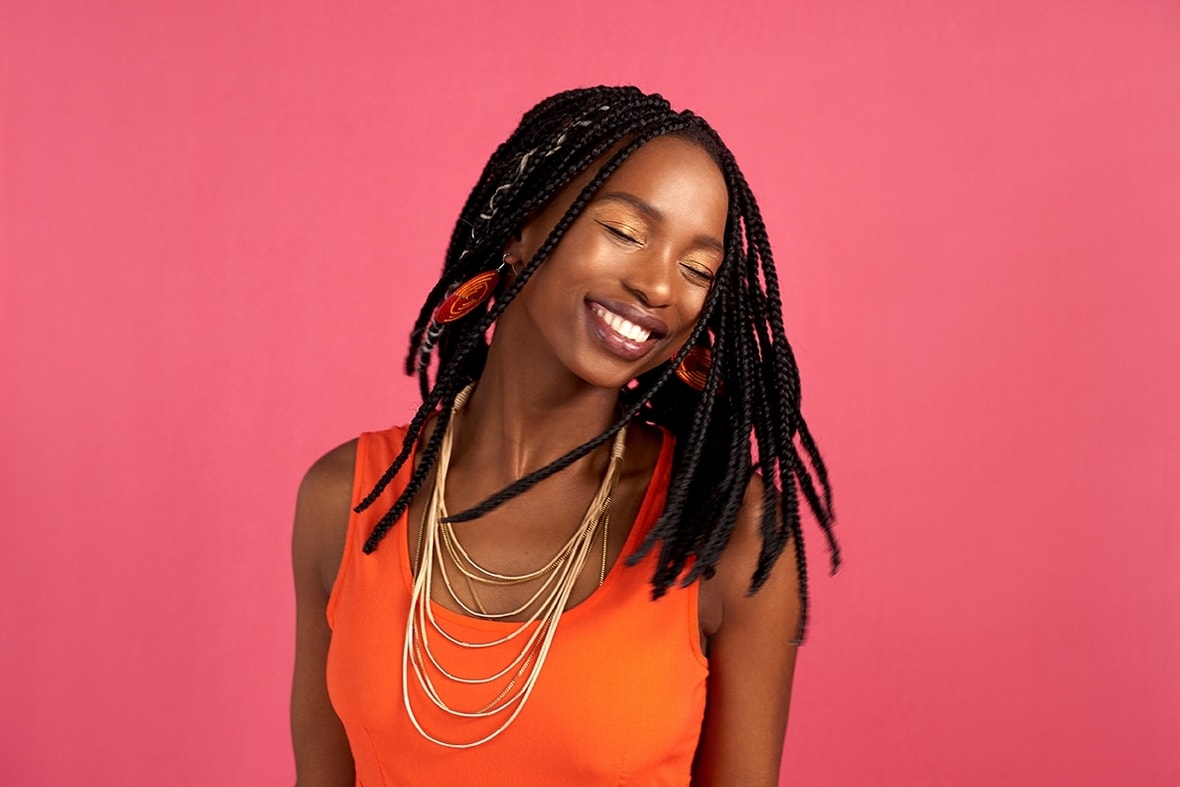
Braid box
If you’re looking for a versatile and stylish protective style, look no further than box braids.
Whether you wear them long or short, thick or thin, box braids are super chic and on-trend.
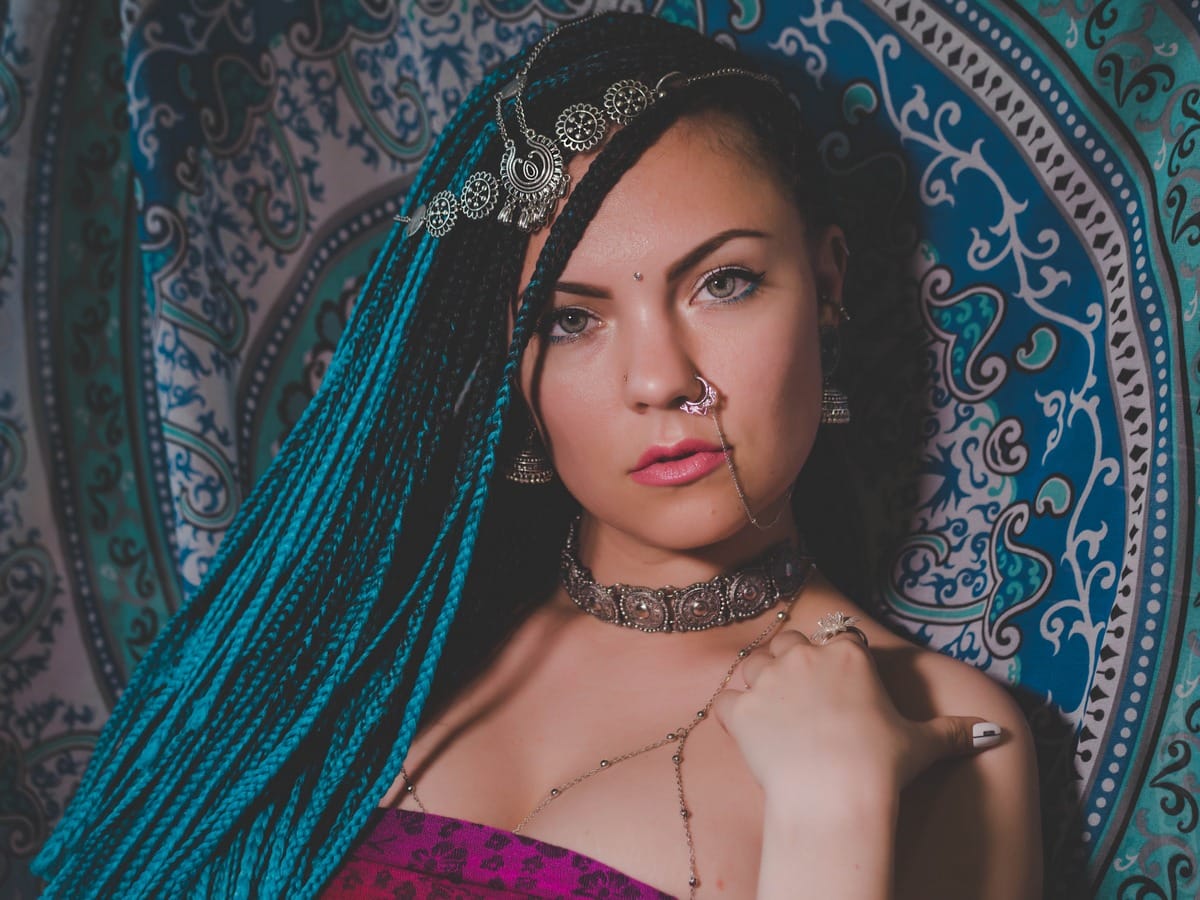
Colorful braids
One of the advantages of colored braids is that you can experiment with different hair colors without making a long-term commitment.
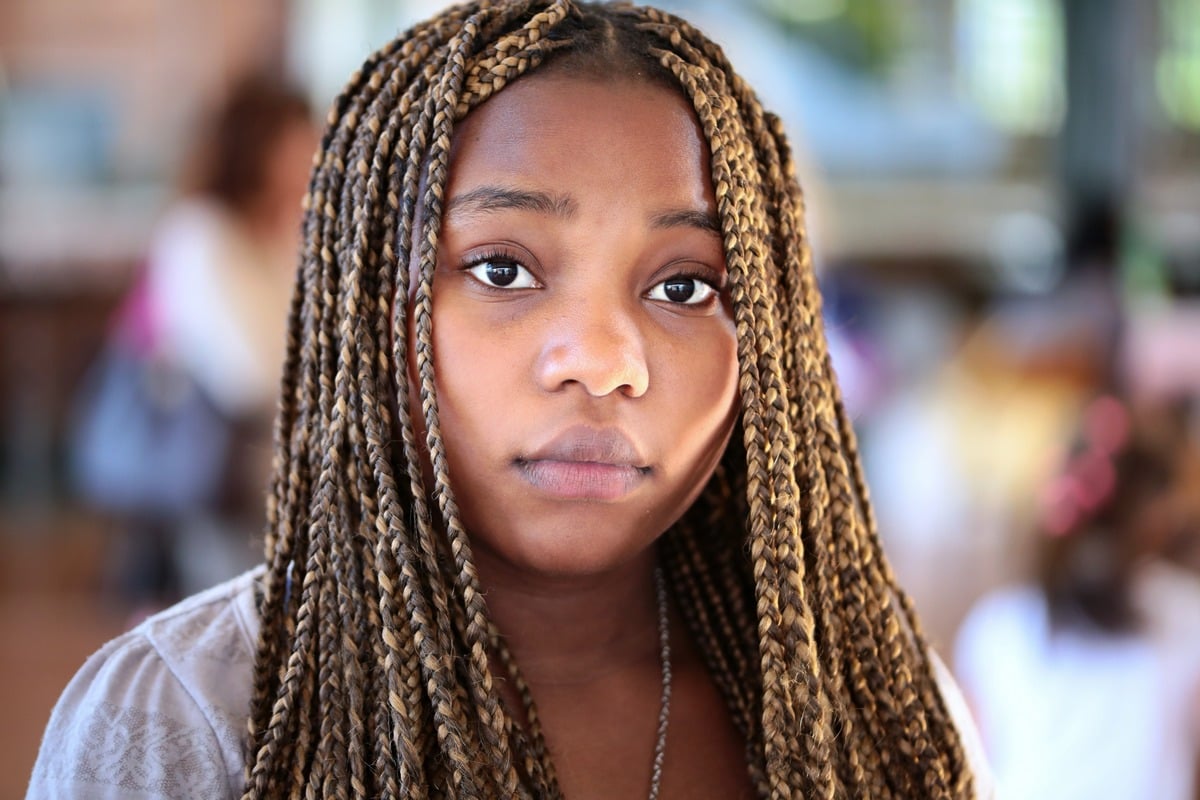
Shaded braids
Shadow braids are another way to give braids a modern twist.
If you’re looking for a look that will turn heads, try this look.
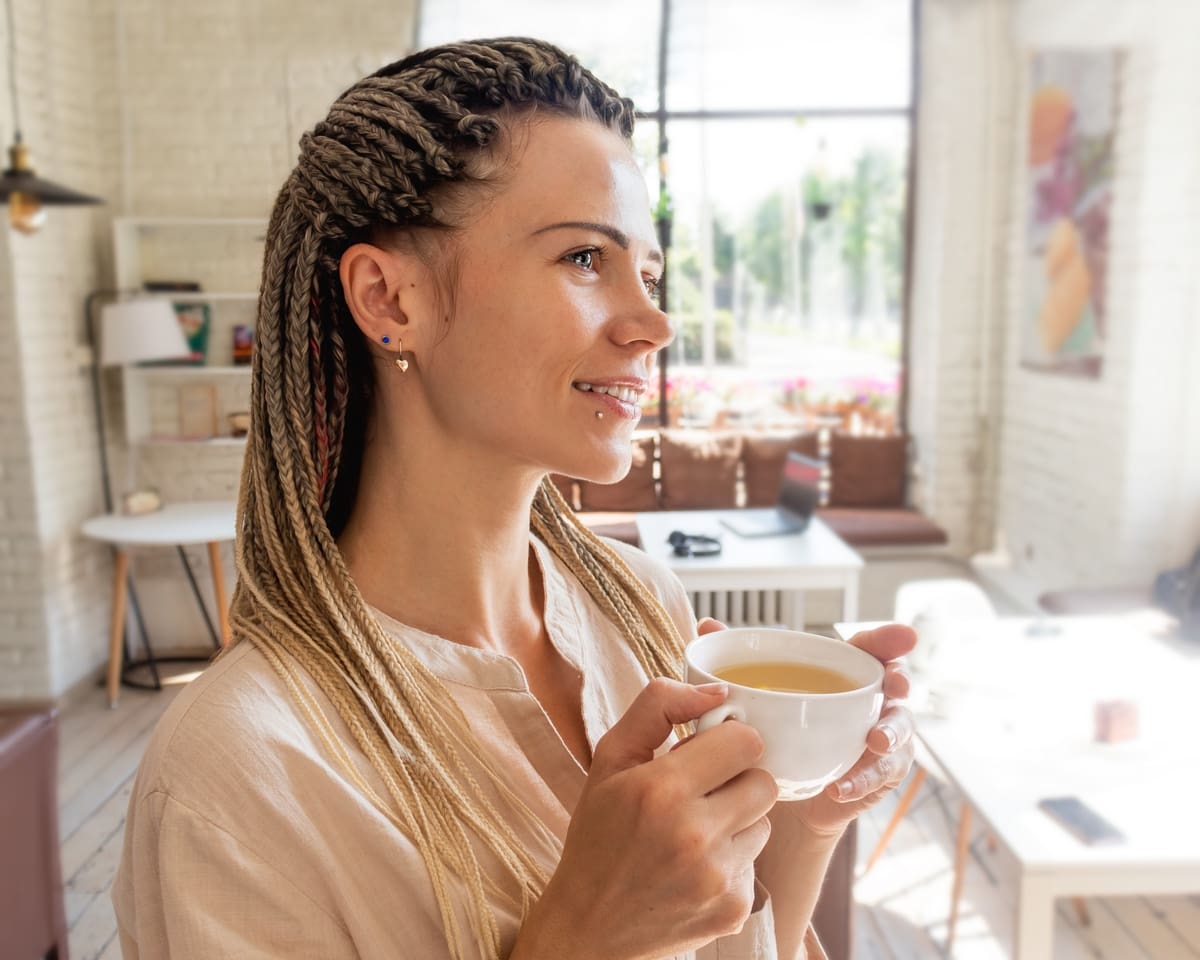
Bob braids
Bob Braids are very much on trend.
If you want to create a protective hairstyle that’s minimal, but looks obvious, try a bob with box braids.
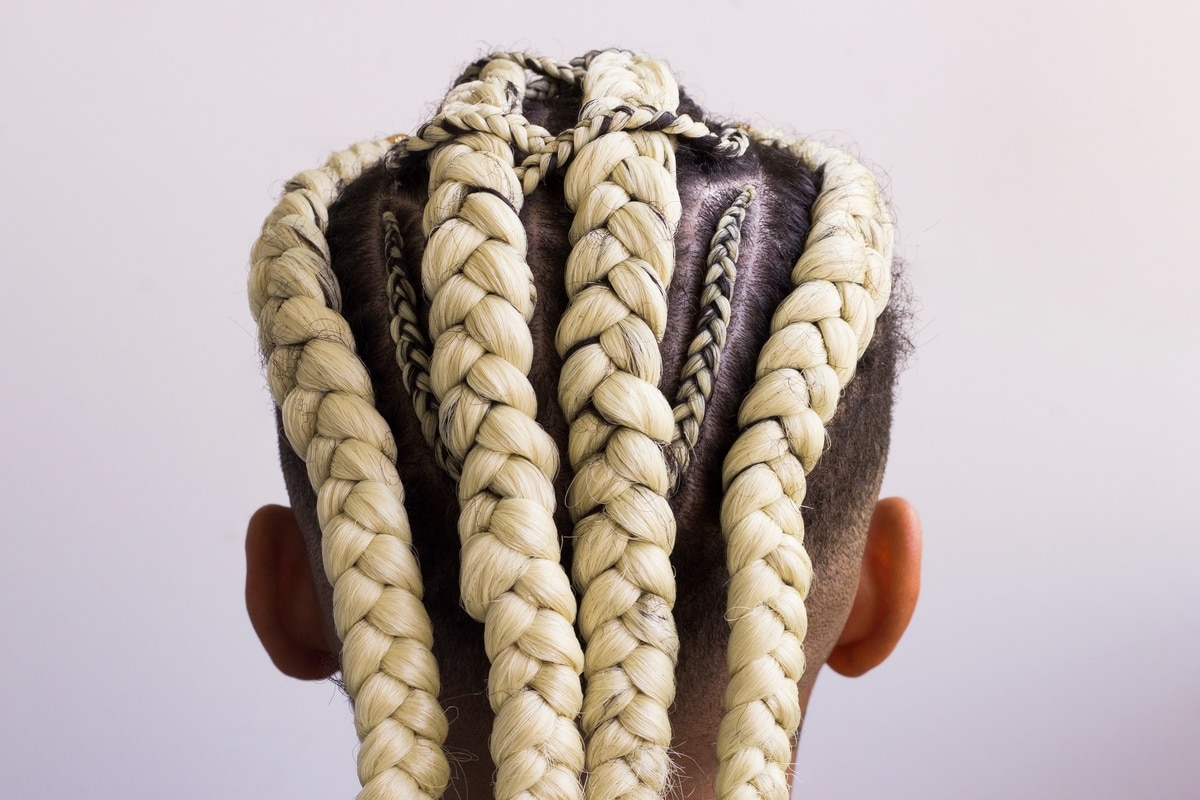
Thick braids
Standard box braids are generally thinner, but big box braids give a bold style, with thick texture and a vintage touch.
Knotless braids
Many celebrities use knotless braids.
This Beyoncé-approved hairstyle is a great way to protect your locks from stress and explore different lengths and colors.
Unlike box braids, no knots are needed, which reduces tension and gives the hairstyle the natural look we love.

Crochet braid
It’s possible to mistake crochet braids for a person’s real hair, which is one of the reasons we love this look so much.
Crochet braids are a way of making hair extensions by tangling the hair under your hair with a crochet needle and securing it with a knot.
Crochet braids can be worn straight, curled or braided.

Fulani braids
Peul braids, named after the West Africans from whom they originate, are a mix of cornrows and box braids, and can be worn with or without pearls.

Faux Locs
One of the most iconic hairstyles of all time is dreadlocks.
They’re perfect for naturalists who want a hairstyle that’s as bold as it is protective.
However, dreadlocks require a lot of patience, as they can take years to complete.
If you’re not ready yet, faux locs are a temporary protective hairstyle where the extensions are a curl, not your natural hair.
Also read: eyebrow microblading (safe)

Goddess Locs
Goddess locs are a form of faux loc with a more bohemian vibe.
What distinguishes goddess locs from traditional faux locs is that the ends are left curly or wavy rather than sealed.
Double strand twists
Double-strand twists are lightweight, tension-free and require no heat.
They’re ideal for natural hair, as they retain moisture longer and don’t tangle.
Less manipulation and better moisture retention mean healthy, hydrated locks.
Marley twists
This hairstyle was inspired by music legend Bob Marley and his iconic long dreadlocks.
A popular alternative to fake locs, Marley Braids were created to mimic the look of natural curls.
What sets this hairstyle apart from others is the use of Marley’s long, curly synthetic hair.
Havana twisted
Freetress Equal Tresses are similar to Marley twists, but have a different look, feel and cost.
Havana twists are thicker and have a bouncier hair texture for a better look.
The style is also much lighter than Marley twists, putting less pressure on the scalp.
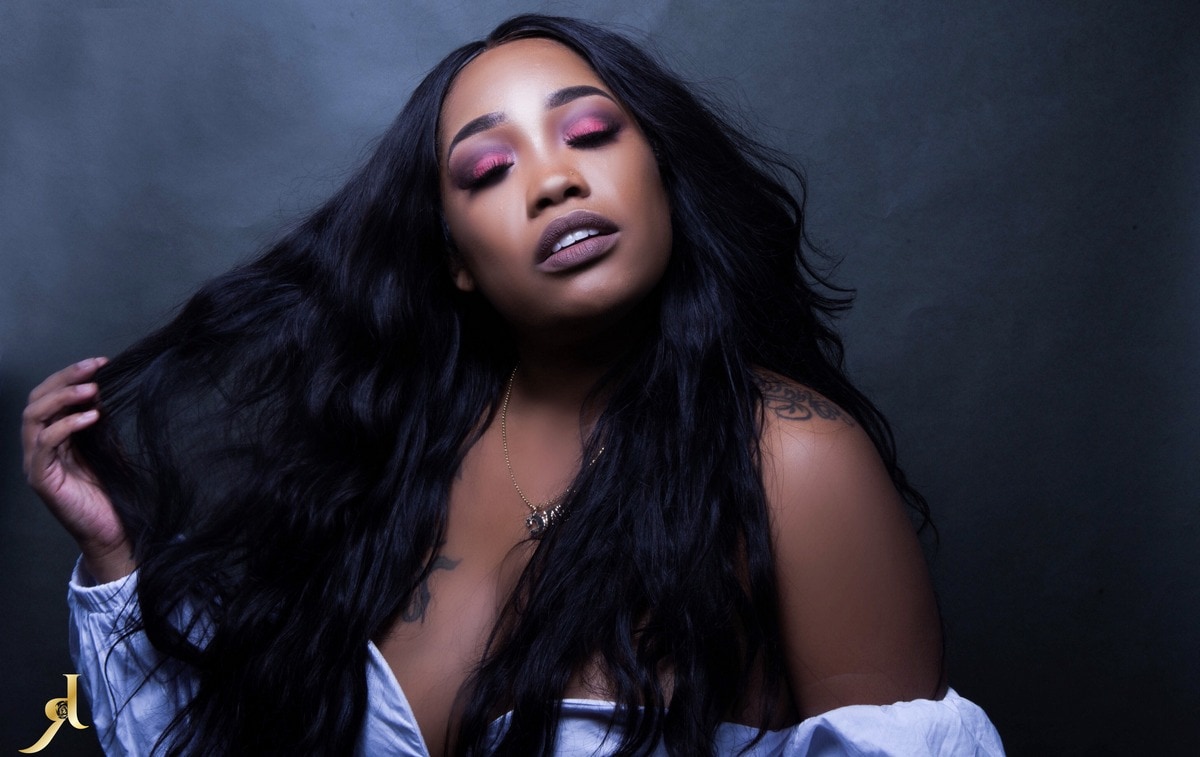
Senegalese curly hair
Whether you want to use your natural hair or extend it, Senegalese curly hair looks great in any length.
Big, long Senegalese curly hair looks very natural.
Dutch braids
If you’re tired of wearing a topknot every day, but don’t have the time or skills for a more complicated braided look, try Dutch braids.
Dutch braids are also an ideal style to combine with a hair treatment or oil.
Bantu knots
Today, many of our favorite celebrities sport Bantu knots, but this style has a long and rich history.
This simple, glamorous look has been around for over 100 years and is making a strong fashion comeback.
It is used as a protective hairstyle for natural and relaxed hair, and is commonly used in hair night routines to keep curly hair more durable and defined.
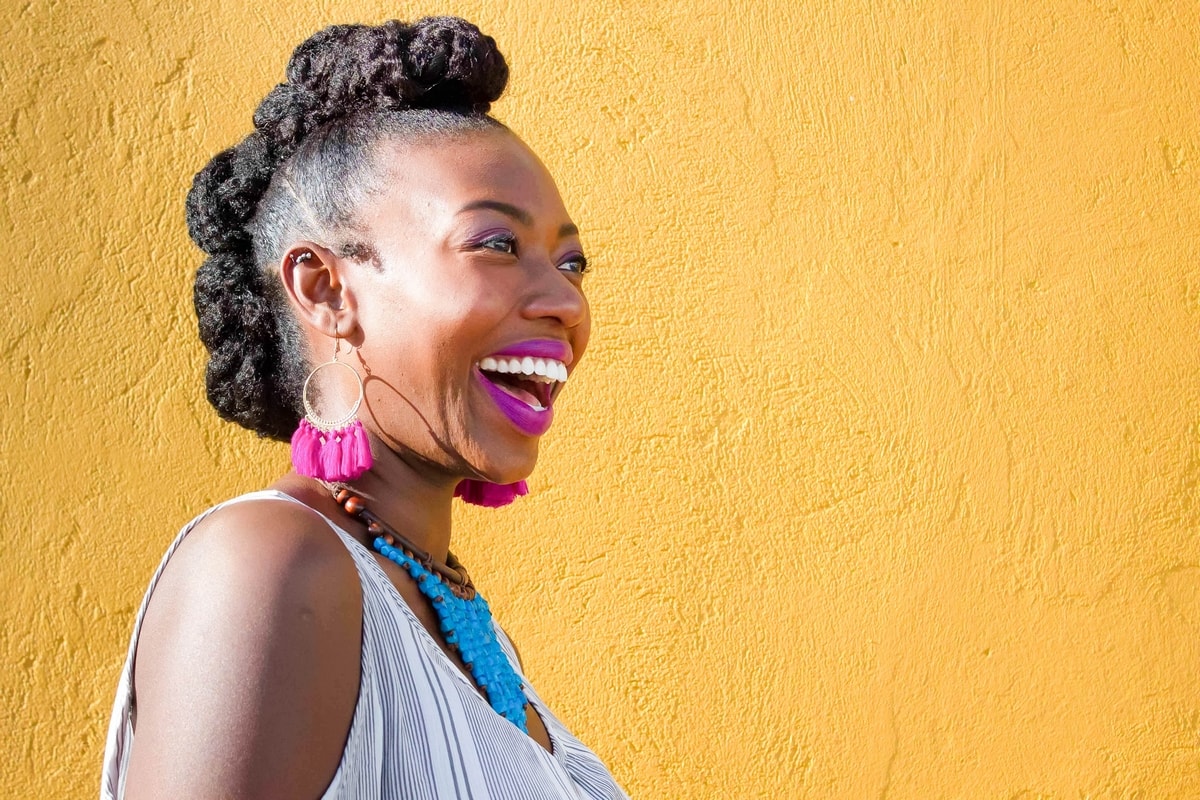
Space buns
Cooler than the ponytail, the spatial chignon, also known as a macaroon bun, is a fun, whimsical protective hairstyle that suits all hair textures.
Upper node
If you don’t have much time to devote to your hair, but want to protect it, the top knot is the perfect hairstyle.
The trendy updo can be worn very elegantly, or more freely and casually.
The low braided ponytail
Who says hair has to be complicated to be bella! This classic braided ponytail is easy to make yourself, looks super chic and protects your hair.
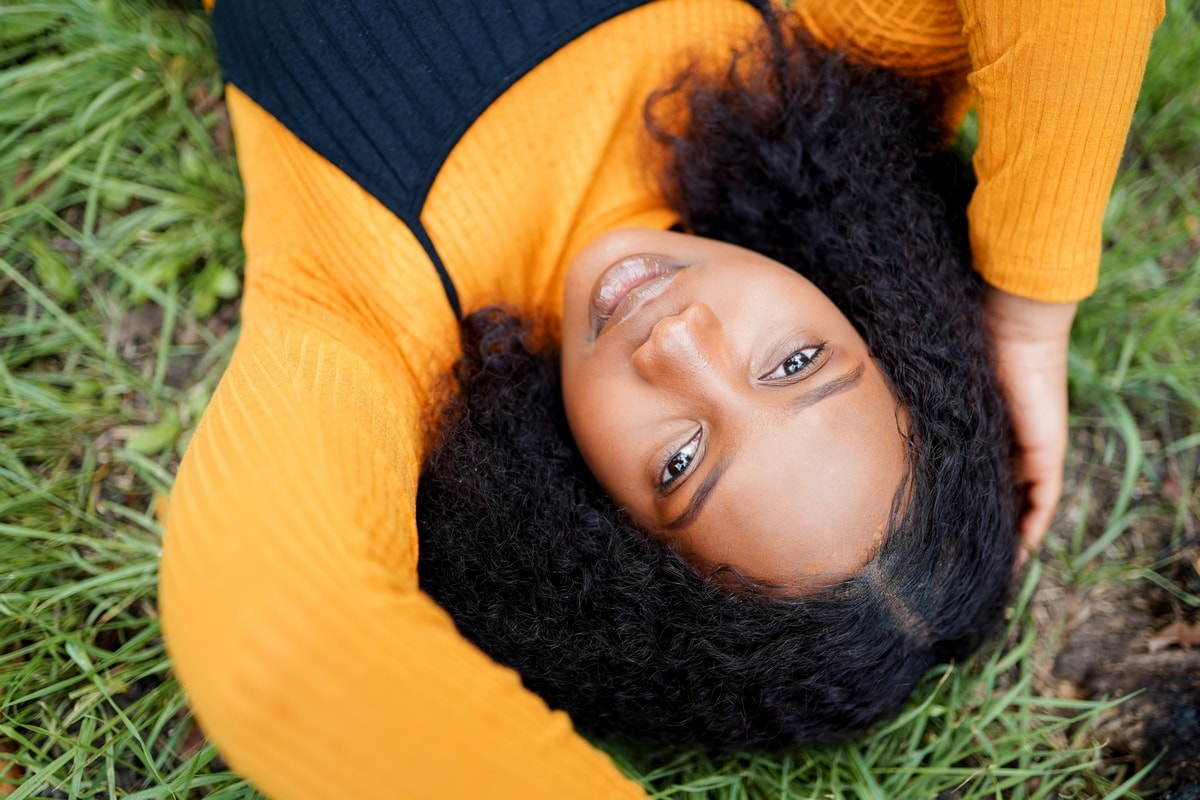
Wigs
Wigs are a great protective style that lets you change your look as often as you like.
They’re perfect for people who want to grow out their hair, as the new growth will be hidden underneath.
With so many options on the market in Quebec, there’s a wig for every budget and every style.
To avoid disappointment, we recommend that you buy from a physical store in Montreal, not from an online boutique!
Also read: how to choose a natural wig?
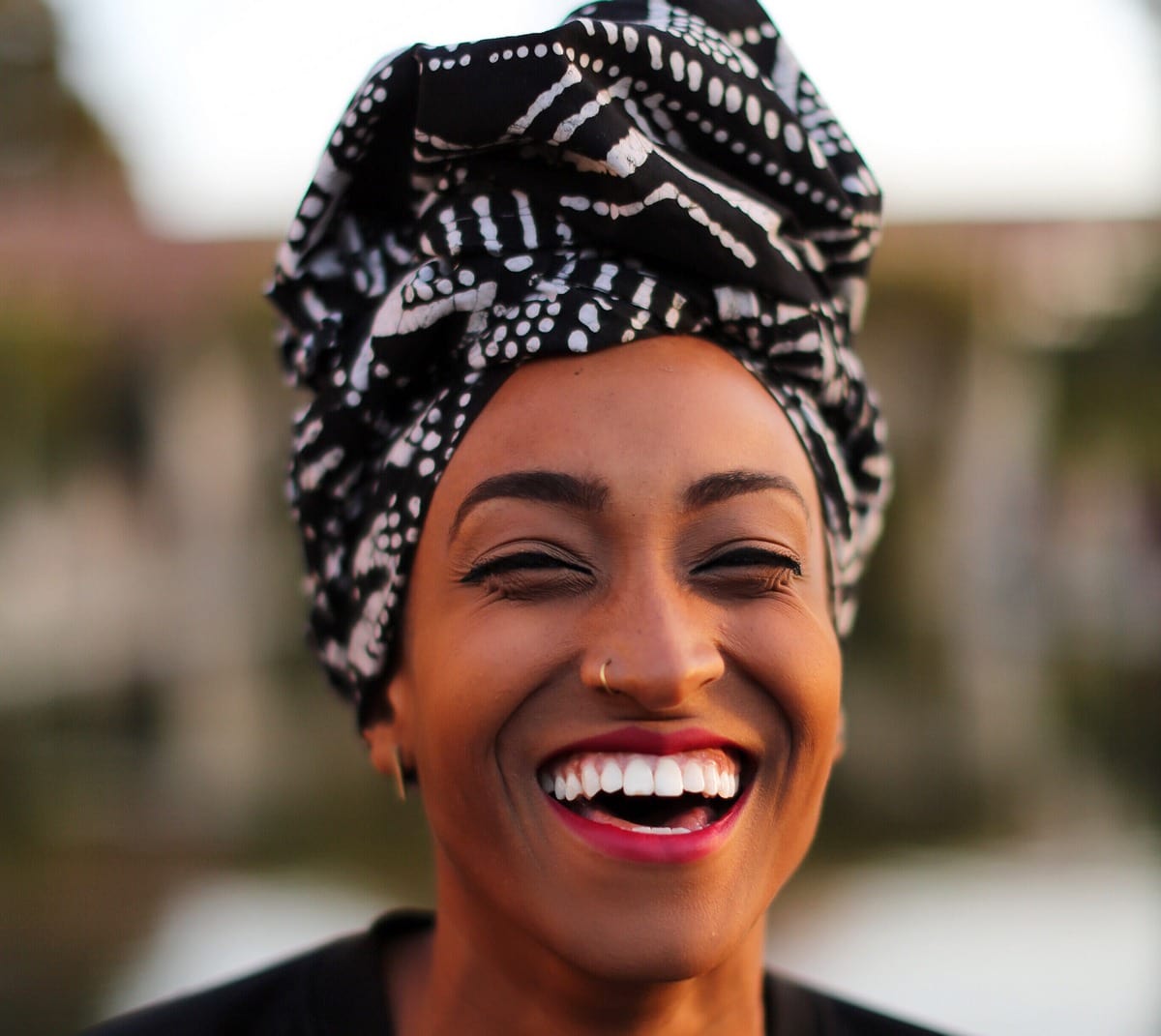
The bun
It’s a simple, everyday style that’s perfect for elegant, formal occasions.
All you need are hair clips and a covered elastic or headband, preferably satin.
Bun buns work on both natural and relaxed hair.
If you prefer, you can spread your hair down the middle or to one side.
You can also add a chic touch with cool accessories.
“One of my biggest dreams is that my company will be able to change the course of one family’s life, one child at a time by giving back to the community.”



